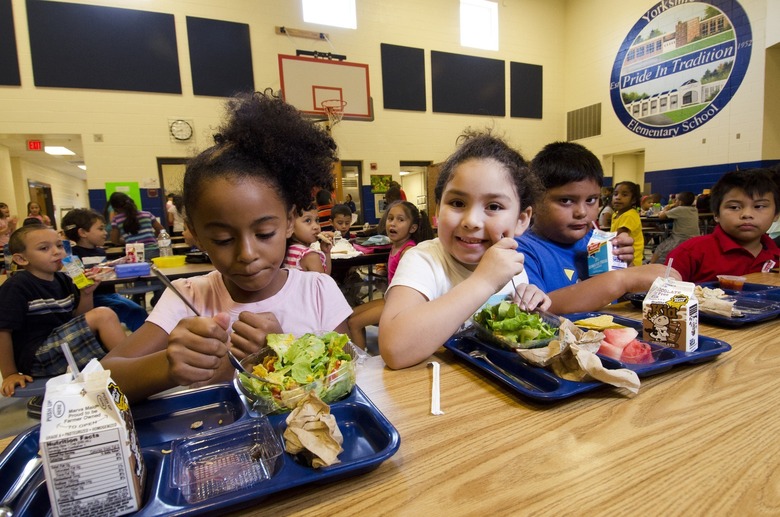Researchers Find That Kids Will Eat More Fruits And Vegetables If You Pay Them
In a study that is unlikely to surprise any parents who have contemplated bribing their children out of a tantrum, researchers have discovered that children are more likely to eat their produce when they are paid to do so, in comparison to their peers who are not rewarded for their good eating habits.
The study, conducted across six elementary schools in Utah, tested the results of three methods of reinforcement for eating their fruits and vegetables: money, praise, and nothing.
During the trials, 882 students were offered cash prizes for completing the task, 640 were praised by their teachers, and 770 kids received no acknowledgement for their hard work.
Assuming that the study wasn't skewed because the researchers openly dispensed money to some students and not others, the team found that students who received money increased their fruit consumption by .32 cups over a two week period, and students who were praised increased their consumption by .21 cups.
Although that might seem disheartening to anyone who hopes their children will simply grow to appreciate nature's bounty, the psychologists behind the experiment suggest that perhaps a cash incentive might be used to introduce a new food, but not sustain the habit of eating it.
"The rewards can be used to encourage children to repeatedly try fruits and vegetables, Greg Madden, the study's co-author, told Agweek. And at the very least, "there is some evidence to suggest that repeatedly tasting novel foods increases their acceptability."
The rewards continued in these classrooms for the next three months, and then stopped. Six months later, the group of students assigned to receive cash prizes was still eating more fruit than their peers, despite the fact that the prizes had stopped.
While we still don't think parents should pay their children to eat well, the results suggest that a little bribery might go a long way. Just don't tell your kids that you're taking the money out of their allowance.
